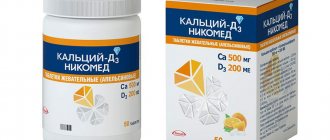The body cannot fully function without a sufficient amount of any trace element. When breastfeeding, every woman inevitably faces an increased need for calcium, because during this period, a guaranteed 5% of it is consumed. If your body does not have enough calcium, it will give you signals for help and it is very important to pay attention to them in time. We will tell you why calcium is so vital during breastfeeding, why it may be lacking, and how to deal with it.
Calcium deficiency is a problem that affects not only you, but also your baby. For him, the microelement is no less important for health and development. Often he needs it even more than his mother. The health of your baby is the most serious reason to think about the importance of the vitamin. Fortunately, the problem of its deficiency is easily solved. Many mothers take the popular Calcemin while breastfeeding, and most women simply adjust their diet.
The benefits and harms of calcium
The trace element is found in human blood, soft tissues, and bones. Important processes in the body of mother and baby cannot occur without his participation:
- Responsible for the formation of tooth enamel and bones.
- Makes blood vessels strong.
- Reduces the likelihood of developing allergic reactions in newborns.
- Positively affects hair and nails.
- Supports normal blood clotting.
- Improves the functioning of the nervous system.
- Reduces blood pressure.
- Eliminates signs of fatigue, stress and overexertion.
- Helps remove heavy metals from the body.
- Responsible for the normal functioning of the pancreas and thyroid glands.
The substance has a negative effect on the body if it enters it in large quantities. Exceeding the dosage of a microelement is dangerous for a woman’s body, especially during the lactation period. As a result of uncontrolled intake, hypercalcemia develops.
Why is calcium so important?
Even during pregnancy, important microelements and vitamins are transferred from the mother to the baby to build the foundation of his small body, and calcium is no exception. During breastfeeding, its additional source is necessary for the complete restoration of the woman’s body, as well as her hormonal levels. The mother absorbs the beneficial microelement only in the amount that remains after the baby, so it is necessary to consume it several times more. For this purpose, special vitamin complexes have been created for nursing mothers; with their help, not only the mother receives a sufficient amount of useful substances, but also the newborn receives a portion of fortified milk. In addition to restoring the body after childbirth, this important element performs a number of other vital functions, which is why it is so important for the body, and these are:
- is a component of bone tissue and the basis of tooth enamel;
- reduces the influence of harmful cholesterol;
- strengthens the walls of blood vessels;
- improves the condition of hair and nails;
- prevents the formation of blood clots;
- improves the functioning of the endocrine system;
- adds energy.
Otherwise, the female body itself tells the young mother that the amount of calcium is not sufficient. This is usually indicated by:
- deterioration of teeth;
- active onset of hair loss;
- separation of the nail plate;
- abnormal blood counts;
- sudden mood swings;
- failure in the endocrine system.
For infants, the lack of vitamins also has a negative effect - problems with teeth appear, the condition of blood vessels worsens, allergies may occur, and rickets is not excluded in the future.
How does calcium affect the body of a nursing mother and child?
During lactation, the mother's body works for two. The woman shares vitamins, minerals and other nutrients with the child. At this moment, it is important to pay attention to the supply of microelements.
If there is not enough calcium in the body, a person’s appearance indicates this. Hair becomes dull and split. Teeth become brittle and caries may begin. The skin loses its natural radiance, itching and a feeling of withering are felt. A daily intake of calcium will help avoid these problems.
The lack of an element results in the following problems for the baby:
- the appearance of caries at an early age;
- late teething;
- frequent cramps in the arms and legs;
- development of a disease such as rickets.
In order for breastfeeding to take place without any problems and abnormalities in the body of the baby and the mother, attention is paid to the level of calcium in the body.
The body's cry for help
If you have a calcium deficiency, you will understand this by the signals that your weakened body will give you. These symptoms are common to all women, regardless of whether she is breastfeeding or not:
- brittle nails and hair;
- hair loss;
- crumbling of teeth;
- dry skin, possibly even premature aging;
- the appearance of acne on the skin;
- joint pain;
- increased fatigue;
- poor concentration;
- cramps and muscle pain;
- bleeding gums;
- the appearance of caries.
The condition, of course, is unpleasant, but easily fixable. For girls with these symptoms, a detrimental effect on their appearance, which is difficult to miss, can be a huge disaster. And for women who have become mothers, the main reason for urgent measures to solve the problem will be the consequences of calcium deficiency for their baby.
Symptoms of micronutrient deficiency
In addition to the general condition, women show signs of quite dangerous diseases.
Osteoporosis
A deficiency of the element leads to osteoporosis. Characterized by decreased bone density. As a result, their fragility increases due to the leaching of microelements from bone tissue.
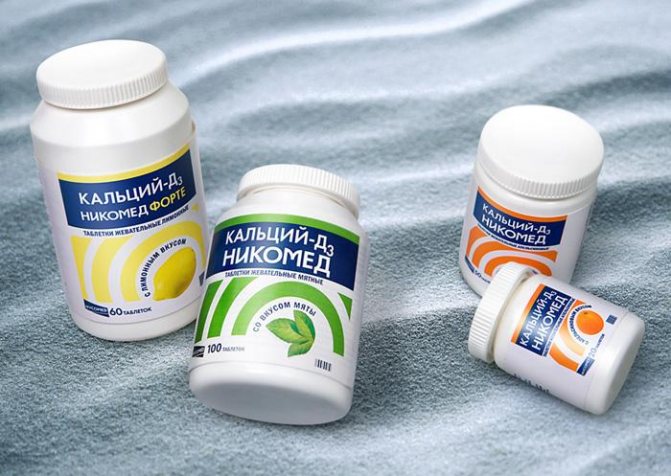
Cardiovascular diseases
Getting insufficient amounts of calcium leads to diseases of the cardiovascular system. In this case, the person is not protected from strokes and heart attacks. The level of risk of cardiovascular diseases is determined by the attending physician.
High blood pressure
The substance is also responsible for normalizing blood pressure. People suffering from high blood pressure do not even suspect that the problem is precisely the lack of a microelement. Daily consumption of the acceptable amount solves the problem.
Oncology
As a result of the research, scientists came to the conclusion that with a deficiency of the element, the risk of developing intestinal cancer increases.
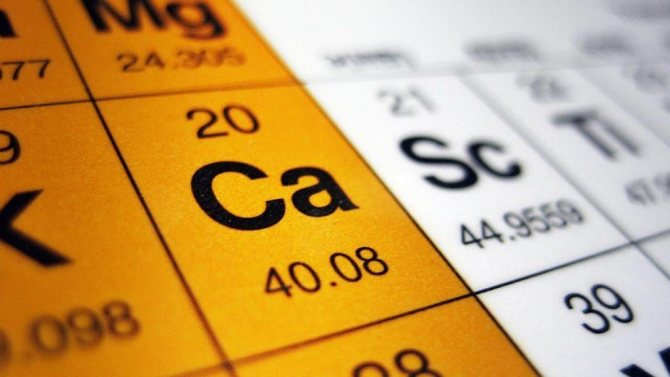
Nutrition for a nursing mother
During pregnancy, most women try to choose healthy foods.
This approach should remain after childbirth, since the baby’s growth accelerates even more. Additional inclusion of calcium-rich foods in the diet will help replenish reserves and maintain the health of the young mother during breastfeeding. This mineral is one of those components whose needs can be calculated in grams. A baby under one year old needs about 600 mg per day. A nursing mother needs 1.6 - 2 g. This amount will ensure not only the full composition of breast milk, but also to avoid leaching of calcium from the bones of a young mother. This will help reduce the risk of osteoporosis, which is common in older women.
What kind of calcium can a nursing mother drink?
There are differences between organic and inorganic calcium. In the first case, the microelement is supplied through plant foods. The body easily absorbs it, so there is no need for high doses.
Inorganic is presented in the form of citrate, calcium carbonate and dolomite. Absorption of one of these substances occurs slowly.
Inorganic has the ability to accumulate in soft tissues, internal organs and bones.
It is better to give preference to taking organic. But with breastfeeding, the doctor can prescribe the drug that is most suitable for the nursing mother. It has been scientifically proven that calcium malate is easily absorbed by the body.
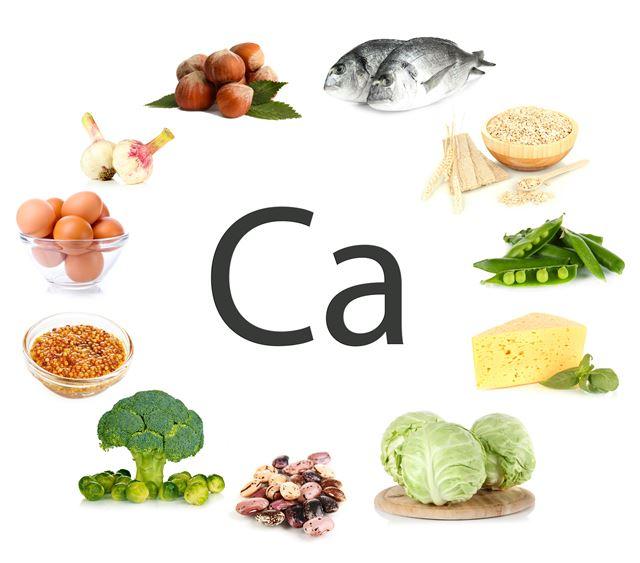
Why does the body need calcium: beneficial properties and daily intake
Ca is a building material necessary for the body. The mineral participates in metabolic processes, strengthens the connective tissues of cells, ensuring the transmission of nerve impulses and the production of neurotransmitters.
Benefit
- strengthens bones, teeth, hair, nails;
- reduces blood cholesterol levels;
- normalizes blood pressure (in combination with magnesium and potassium);
- helps damaged tissues heal;
- increases blood clotting (enhances the effect of vitamin K);
- strengthens the immune system;
- restores acid-base balance.
Calcium is necessary for the normal mental and physical development of a child.
For nursing mothers, combination calcium supplements are recommended. The active substance passes into breast milk, ensuring healthy development for the baby. Some of the mineral enters the mother’s body daily with food, but this may not be enough. You need to drink calcium strictly according to the instructions, taking into account the concentration of the substance in the tablet to avoid an overdose.
Daily norm
The adult body's need for Ca depends on age and diet: for a person 19-50 years old - 1000 mg per day; up to 18 years – 1300 mg; after 50 years – 1500 mg (data from the Washington Institute of Medicine) [1].
When breastfeeding a child, the daily calcium requirement for a woman is 1500 mg, since nursing mothers require additional calcium.
Sources of calcium
The trace element is found in products that people use in cooking. Eating organic is not always enough for a woman. In some cases, medication may be necessary.
Dairy
The record holder for microelement content is cow's milk. Unfortunately, consumption in its pure form is contraindicated for many people due to the possibility of allergies. The body of many women refuses to accept milk.
In this case, dairy products will come to the rescue - cottage cheese, yogurt, sour cream, kefir. Must be included in a nursing mother's diet. An excellent option is to prepare dairy products at home.

Calcium preparations
You can find many products at pharmacy kiosks. Women also choose among dietary supplements. The pharmaceutical market offers drugs from various manufacturers.
Dietary supplements
Doctors often suggest increasing calcium levels in the body by taking dietary supplements. The products come in the form of tablets, liquids and chewable capsules. The use of dietary supplements is recommended under the supervision of a physician.
"Calcium-D3 Nycomed"
The drug is approved for use by women during breastfeeding. They contain not only calcium. With the help of an additional complex, the microelement is absorbed better.
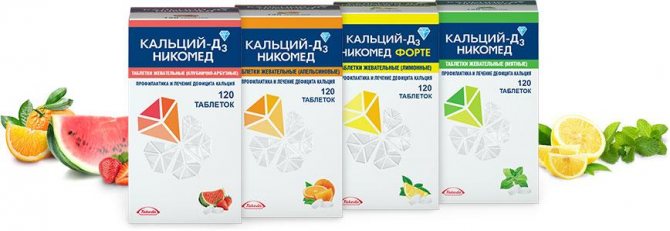
"Kalcemin"
During lactation, Calcemin is indicated. The drug is able to regulate phosphorus-calcium metabolism. The components of the medicine enter the child’s body through mother’s milk.
Calcium gluconate
Another effective drug designed to increase the level of trace elements in the body. Compared to other products, it has one significant drawback. Absorption of the substance occurs much more slowly.
Contraindications to taking calcium supplements and precautions
Calcium supplements are prescribed to nursing mothers with great caution, i.e. Only the doctor decides the dosage of the drug.
All sources of microelements in a woman’s diet are taken into account. The specialist must also monitor the woman’s condition throughout the course.
Contraindications to taking the drug are:
- kidney diseases;
- excess vitamin D;
- renal failure;
- acute tuberculosis;
- sensitivity to the components of the drug;
- age up to 3 years.
Compound
Calcium carbonate (CaCO3) 0.125 g, which in terms of elemental calcium is 0.05 g
Colecalciferol concentrate 0.002 g corresponds to 200 IU of vitamin D
The following are used as auxiliary components:
- Aspartame
- Sorbitol
- Isomalt
- Povidone
- Magnesium stearate
- Flavorings (orange, lemon, mint)
- Fatty acid glycerides.
The content of active ingredients in one tablet corresponds to the daily needs of the body. If there is a deficiency of vitamins included in the drug, the dosage is determined individually.
Dosages and rules of administration
During pregnancy and lactation, a woman’s calcium requirement is no more than 0.15 g of calcium and up to 600 IU of vitamin D. Therefore, if there is a clear deficiency of elements and a lack of vitamins and minerals in the diet, it is recommended to drink no more than 1 tablet per day. Special doses of the drug and regimen can only be prescribed by a doctor monitoring the pregnancy process or a pediatrician.
It is recommended that nursing mothers test their breast milk before taking calcium and, if possible, adjust their diet.
Recommendations
Consumption of this mineral by a nursing mother daily is a necessity. Doctors' recommendations for the use of the drug include cases where it is not possible to cover the daily requirement with food.
"Calcium D3 Nycomed" is taken only after visiting a doctor with subsequent setting of the dosage in each specific case (taking an anamnesis, including familiarization with the nursing mother's menu, to calculate the calcium in the foods consumed).
Dosage and rules of administration
The daily dose is 1500 mg of calcium and 600 MO of vitamin D3 . It is recommended to take into account the amount of mineral supplied with food and adjust the period of use of the drug.
Can I take it during breastfeeding?
Every expectant mother knows about the importance of a balanced diet. The amount of nutrients received from food is consumed in double volume. The daily intake of calcium for a nursing mother is 1.5 g (including food products and medications for nursing). It is important to take these data into account in order to prevent an overdose of the microelement.
According to the instructions for use of the drug "Calcium D3 Nycomed", its use during breastfeeding is permitted. To avoid calcium oversaturation, it is necessary to undergo the necessary blood tests before using Ca-containing medications.
Self-administration can lead to dangerous consequences.
Permitted analogues
Among drugs with similar effects during breastfeeding, the following are allowed:
- Calcium gluconate.
- "Kalcemin", "Kalcemin Advance".
- Multivitamin complexes – “Elevit”, “Mom’s Health”, etc.
Vitamin D3 is a catalyst for better calcium absorption . Therefore, preparations containing it deliver the mineral to the body faster and in larger quantities.
The drug Calcium D3 Nycomed and its analogues are taken to prevent or compensate for calcium deficiency, for the purpose of prevention and treatment of osteoporosis of varying severity.
Indications for use
The drug is recommended for use during periods of increased body need for calcium. For example, during pregnancy or breastfeeding, as well as during menopause and in some other situations.
Calcemin contains not only a trace element, it is a vitamin and mineral complex. It includes the following components:
- calcium,
- vitamin D,
- compounds of zinc, copper, manganese, boron and sodium,
- additional substances that do not play a role in the therapeutic effect.
The complex thus selected provides bone tissue and epidermal derivatives (hair, nails, etc.) with building material.
The drug improves the conduction of impulses from muscles to nerve endings, to the spinal cord and brain, and then in the opposite direction. This ensures adequate contractile activity. This drug affects the parameters of the blood coagulation system.
How the complex works
The substances that make up the drug can enhance the therapeutic effect of a single component. Calcemin during lactation is an irreplaceable source of essential microelements.
Calcium
The calcium included in the drug is represented by two different compounds. This ensures a minimal percentage of adverse reactions even with long-term use or in case of impaired absorption in the intestine. In particular, the risk of kidney stones is reduced several times in such conditions.
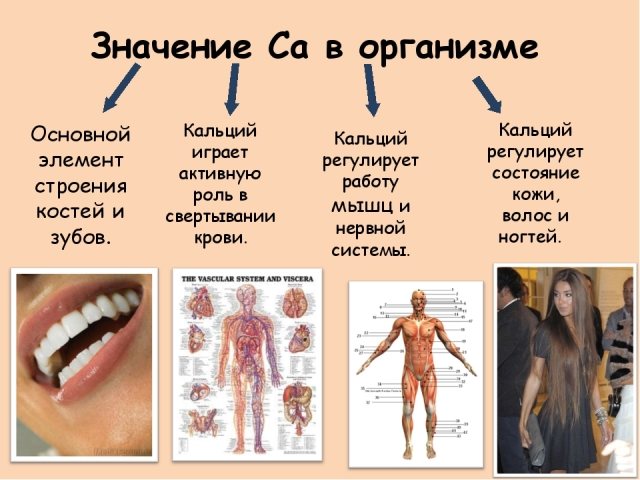
The importance of calcium in the body
Vitamin D
The complex also includes vitamin D (cholecalciferol). This composition is designed to further improve the processes of bone tissue restoration and prevent osteoporosis and destruction in these tissues. The fact is that calcium and vitamin D always “work” in pairs; one element is absorbed much worse without the other.
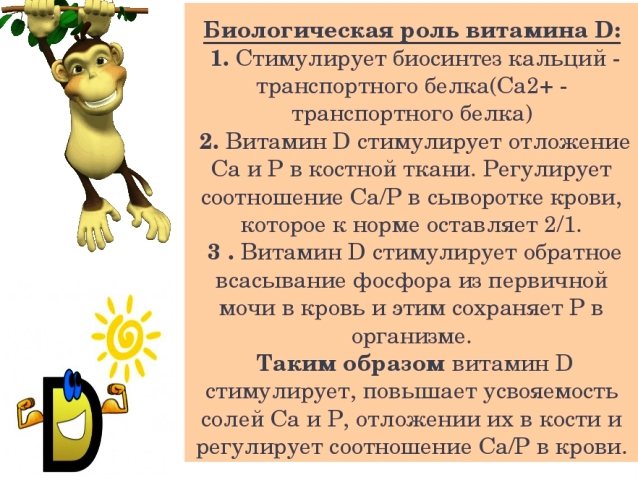
Zinc
The zinc included in the composition is aimed at regulating many metabolic functions, including those necessary for the absorption of calcium and the regeneration of bone and other tissues.
Copper and manganese
Copper and manganese work to “save” calcium in the body, releasing reserves only when absolutely necessary. They are also involved in the formation of some bone components, which are the basis for their further growth.
Bor
Boron regulates the functioning of the parathyroid gland. This small internal secretion organ is responsible specifically for mineral metabolism, including calcium and magnesium.
An important question is whether it is possible to drink calcemin while breastfeeding, because any medications are undesirable during lactation, as they can penetrate into the milk and cause various unpleasant reactions in the baby. Calcemin is absolutely safe in this regard. It is recommended for use in the following situations:
- To strengthen and preserve teeth and their enamel. After all, many women after the second and subsequent births, the reserves in the body are exhausted.
- To prevent the development of osteoporosis and “washing out” of calcium from bones.
- To improve the appearance of nails and hair. Their structure and growth rate depend on the amount of calcium in the body. Flaky, lumpy nails and split ends without shine are the result of a deficiency of this microelement.
- In order to strengthen the vascular wall and normalize blood clotting ability. Not everyone pays attention to the fact that after childbirth, even minor blows cause the formation of bruises, and this is also caused by a lack of calcium in the body. Calcium also reduces the likelihood of blood clots, which is especially important for girls with signs of varicose veins in the legs or after a caesarean section.
- To normalize the functioning of the nervous system. Stress, fatigue, worries - all this is typical for the postpartum period. Calcemin normalizes a woman’s psycho-emotional state.
- This complex also helps bring blood pressure to normal.
- To improve the functioning of the thyroid and parathyroid glands.
The drug should be taken in the dosage recommended by your doctor. As a rule, all adverse reactions are associated only with non-compliance with prescriptions. Nausea and vomiting, other digestive disorders, as well as more serious complications may occur.
Watch the video about the action of the drug:
Contraindications
Despite the fact that this is just a vitamin-mineral complex, Calcemin Advance should be taken during breastfeeding only after consulting a doctor. After all, a woman may have contraindications to this remedy. The medicine should be used with caution in the following conditions:
- If you ever have an allergic reaction to any of the components of the drug. It doesn’t matter whether it was a rash or swelling, etc.
- With increased calcium levels in the blood and urine. The fact is that the components of calcemin are metabolized in the body and then excreted by the kidneys and intestines. Elevated concentrations can lead to convulsions, disruption of the heart muscle, and stone formation in the bile ducts and kidneys.
- For some cancers in which calcium is necessary for tumor growth.
- History or current history of urolithiasis. And also in case of renal failure of any etiology.
- The drug should be taken with caution if there are disorders of the gastrointestinal tract, especially if there are problems with the absorption of substances (ulcerative colitis, etc.).
- The medicine should not be used together with drugs that affect its metabolism. For example, with calcium antagonists, which are often prescribed for high blood pressure.
We recommend reading the article about calcium during breastfeeding. From it you will learn about the need for microelements for the body of a nursing woman, foods containing calcium, as well as the possibility of using pharmaceutical supplements.
What foods to balance your diet with?
The easiest way for a nursing mother to begin replenishing daily calcium reserves is through properly selected nutrition. There are many foods rich in this mineral, but you should take into account their allergenicity, combination with other foods for indigestion, and impact on the baby. Absorption is negatively affected by smoking, alcoholic drinks, salty foods, foods with oxalic acid, and fatty milk. Coffee or tea in large quantities helps flush calcium salts from the body, and physical activity prevents its loss.
It must be remembered that the absorption of calcium depends on the presence of vitamin D3 and magnesium in the body. While magnesium is easily found in legumes, bran, brown bread, nuts, and oatmeal, the natural production of vitamin D3 requires sunlight.
| Name | Amount of Ca per 100 g | Product properties |
| Hard Parmesan cheese | 1184 mg | In terms of the amount of calcium, hard cheese (especially Parmesan) is considered a record holder, since 100 g contains the daily requirement for an ordinary person (1000 mg). Nutrients are absorbed by 98–99%, which makes it a unique product for women during breastfeeding. |
| Hard cheese (Dutch, Poshekhonsky, Cheddar) | 1000 mg | |
| Almond | 273 mg | When consumed regularly, nuts restore healthy shine to hair and eliminate brittle nails. Do not use more than 2 times a week. |
| Cottage cheese, low-fat yogurt | 150–164 mg/124 mg | They have a great effect on the condition of mother and baby; you need to choose products with low fat content and without additives. |
| Beans (not canned) | 150 mg | It is administered with caution, since the use of the product may result in flatulence in infants. |
| Dried figs | 144 mg | The fruits are well tolerated by infants and do not cause allergies. You can add it to salads, desserts, and cook compotes. |
| Bananas, apples, grapefruits | 8/16/23 mg | Fruits with low calcium content are safe during breastfeeding. |
During breastfeeding, parsley and dill will also help maintain mineral balance in the body.
The richest source of calcium is sesame - the content of the element in a tablespoon of seeds is 88 mg. However, its use requires caution, since it can cause an allergic reaction in the baby, like cow's milk, although it is considered the main supplier of the beneficial mineral, but in fact milk contains only 120-126 mg of Ca / 100 ml.
Peaches, oranges, and white cabbage are considered controversial foods containing calcium: they can upset a child’s stomach and cause skin rashes. The introduction of sea fish, shrimp, and algae into the diet is fraught with intoxication of the body.
Can and should a nursing mother take calcium: TOP 5 drugs and products
13.09.2018 | 24824
The development of the baby daily requires more and more minerals and vitamins, which cannot but be affected by the deficiency of substances in the mother’s body. A woman’s diet during this period is limited to anti-allergens with the exclusion of many healthy foods from the menu. The deficiency of elements must be replenished, including with Ca preparations.
Why does the body need calcium: beneficial properties and daily intake
Ca is the main building material of the body. The mineral participates in metabolic processes, strengthens the connective tissues of cells, ensuring the transmission of nerve impulses and the production of neurotransmitters.
Benefit
- Strengthens bones, teeth, hair, nails.
- Reduces blood cholesterol levels.
- Normalizes blood pressure (in combination with magnesium and potassium).
- Helps damaged tissues heal.
- Increases blood clotting (increases the effect of vitamin K).
- Strengthens the immune system.
- Restores acid-base balance.
Calcium is necessary for the mental and physical development of a child’s fragile body.
Combination calcium supplements are recommended to help nursing mothers. The active substance passes into breast milk, providing the baby with sufficient amounts of the element and healthy development. Part of the mineral enters the body daily with food. You need to drink calcium strictly according to the instructions, taking into account the concentration of the substance in the tablet to avoid an overdose.
Daily norm
The adult body's need for Ca depends on age and diet: for a person 19-50 years old - 1 thousand mg per day; up to 18 years – 1300 mg; after 50 years – 1500 mg. The Institute of Medicine recommends that breastfeeding mothers over the age of 18 consume 1,000 mg of calcium daily, the same as other adults [1].
When breastfeeding, the daily calcium intake is 1000 mg, since pregnant and nursing mothers do not require additional calcium.
Consequences of calcium deficiency in the body: what are the dangers?
During pregnancy, calcium costs doubled, resources were spent on the formation and growth of the fetal skeletal system. Therefore, in the first months after the birth of a child, a woman notices hair loss, brittle nails, weakness, cramps in the limbs, and bone pain. Symptoms are characterized by, an examination is required to prescribe therapy.
Hilary Flower researched this issue and found three important facts that came from Dr. Anne Prentice's research in recent years [2]:
- Restoration of bone mineral density occurs BEFORE weaning. Recovery begins after the baby's diet begins to be supplemented with other foods or liquids (the "partial breastfeeding phase"). By 12 months, breastfeeding mothers had fully restored their bone mineral density.
- If the mother becomes pregnant before full recovery, bone mineral density increases during pregnancy, the phenomenon is usually not observed.
- Mothers who tandem feed live similarly to their breastfeeding counterparts.
Consequences for a woman
- Urolithiasis disease.
- Immunodeficiencies.
- Frequent bleeding, fractures.
- Intestinal malabsorption is the loss of nutrients due to insufficient absorption in the small intestine.
- Hypertension, stroke.
- Osteoporosis is a disorder of bone tissue metabolism.
- Osteoarthritis.
A lack of calcium in the body of a nursing mother provokes disturbances in the functioning of the kidneys, intestines, and cardiovascular system.
Against the background of a weakened immune system, pathologies develop rapidly, so timely prescribed calciotherapy will eliminate dangerous risks for the mother.
The use of combined calcium preparations during breastfeeding will eliminate the development of pathologies associated with hypocalcemia.
But therapy is required only in case of severe deficiency of the element , since normally the body receives the required dose from food.
Consequences for the child
- Irreversible deformation of the lower extremities, sternum, frontal and parietal bones.
- Malocclusion.
- Pulmonary failure (due to curvature of the chest).
- Flat pelvis in girls.
- Myopia.
- Hypermobility of joints.
- Chronic anemia.
Lack of calcium in a newborn is manifested by asymmetry of the skull, softening of the boundaries of the fontanel, the formation of bumps on the crown of the head, and deformation of the legs. Ignoring symptoms leads to delayed physical and mental development of children.
According to the American Academy of Pediatrics policy statement on calcium requirements for infants, children, and adolescents [3]:
“There is no available evidence to suggest that exceeding the amount of calcium in the diet during the first 12 months of life is beneficial for achieving long-term increases in bone mineralization.
There is little data on the calcium requirements of children before puberty.
Calcium retention rates in young children are relatively low and increase slowly as puberty approaches.”
Products with calcium during breastfeeding (lactation): list
The Ca element plays a leading role in the physical development of the baby and is responsible for the formation of the skeleton, muscle tone, and neural connections. Calcium restores a woman’s body after childbirth, restores beauty to hair, strength to nails and teeth.
In the first 6 months, the mother loses 7% of bone tissue, this affects her well-being and appearance. Teeth often crumble, nails peel, and hair falls out. The changes are associated with hormonal changes and will subside in six months.
Calcium is then restored on its own by consuming nutritious foods.
It is not recommended to take calcium supplements without consulting your doctor. A woman often gets scared in the first time after giving birth and prescribes the drug herself.
But after six months, the concentration of the substance in the blood increases naturally and taking supplements provokes hypercalcemia.
The disease primarily threatens complex pathologies of the cardiovascular system.
When adjusting the menu, the tendency to allergic reactions in infants is taken into account. For example, it is better for a nursing mother to avoid drinking milk as a source of calcium for up to six months.
Recommended diet
- Low-fat cottage cheese, natural yogurt without additives.
- Hard varieties of cheese.
- Sesame - as an additive to dishes (5 tablespoons = daily requirement for Ca).
- Figs, prunes, dried apricots.
- Green vegetables and herbs - broccoli, cauliflower, lettuce, dill.
- Fruits - kiwi, green apples, bananas, pears (100 grams - 1% daily share).
- Bread (yeast-free, whole grain flour).
- Nuts from the third month - cashews, pine, walnuts.
For up to six months, pediatricians recommend excluding legumes, bread made from wheat and corn flour, and almonds from the diet.
Despite the high proportion of calcium in the composition, the products are extremely allergenic and unsafe for the baby.
In general, it is considered safe to take up to 2,500 mg of calcium per day, although this is more than necessary. If you're supplementing with more than 500 mg of calcium per day, split the dose so that you don't take it all at once—calcium absorption is best when a person consumes no more than 500 mg at a time. Excessive calcium intake can cause numerous side effects.
TOP 7 products by calcium content
The concentration of Ca in the blood of a healthy body is regulated by biological processes; drug support is required only in case of serious deficiencies.
During breastfeeding, calcium consumption doubles, but adjusting the menu quickly makes up for the costs: 80% of the mineral enters the body with dairy products.
For example, the concentration of Ca in a glass of yogurt is 230 mg, i.e. 1/6 of the daily requirement.
Table 1 - List of foods high in calcium
Product: Ca, mg/100 g:
| Hard cheeses | 550-1200 |
| Brynza | 560 |
| Sesame | 1150 |
| Almond | 254 |
| Sardines | 350 |
| Sprats | 300 |
| Rye bread | 323 |
For proper absorption of calcium, it is necessary to exclude animal fats and products containing oxalic and phytic acids (oatmeal, semolina, tea, coffee, soda). Otherwise, the mineral will not enter the blood serum and will be washed out of the body unchanged.
Parsley is rich in calcium, as well as cabbage and basil. Beans and dried apricots, in addition to their high mineral content, are also very useful during lactation.
The products purify milk from heavy metal salts and remove harmful substances from the body.
Calcium supplements for breastfeeding: list
Drug therapy is discussed with a doctor after diagnosis of disorders. To prevent deficiency, multivitamin complexes containing calcium and dietary adjustments are prescribed. In case of severe deficiency, a course of combined drugs with Ca and colecalciferol (vitamin D3) is recommended. Only in such a complex is the mineral absorbed in the body.
Recommended vitamins for breastfeeding
Table 2 - List of drugs containing calcium
Name: Release form; pieces per package: Ca in 1 tablet, mg: Price, rub:
| Calcium-D3 Nycomed | chewable tablets;20/30/50/60/90/100/120 | 1250 | 210-690 |
| Calcium gluconate | tablets;10-100 | 500 | 14-400 |
| Calcium+Vitamin D3 Vitrum |
Source: https://KormiGrudyu.ru/kaltsij-pri-grudnom-vskarmlivanii

